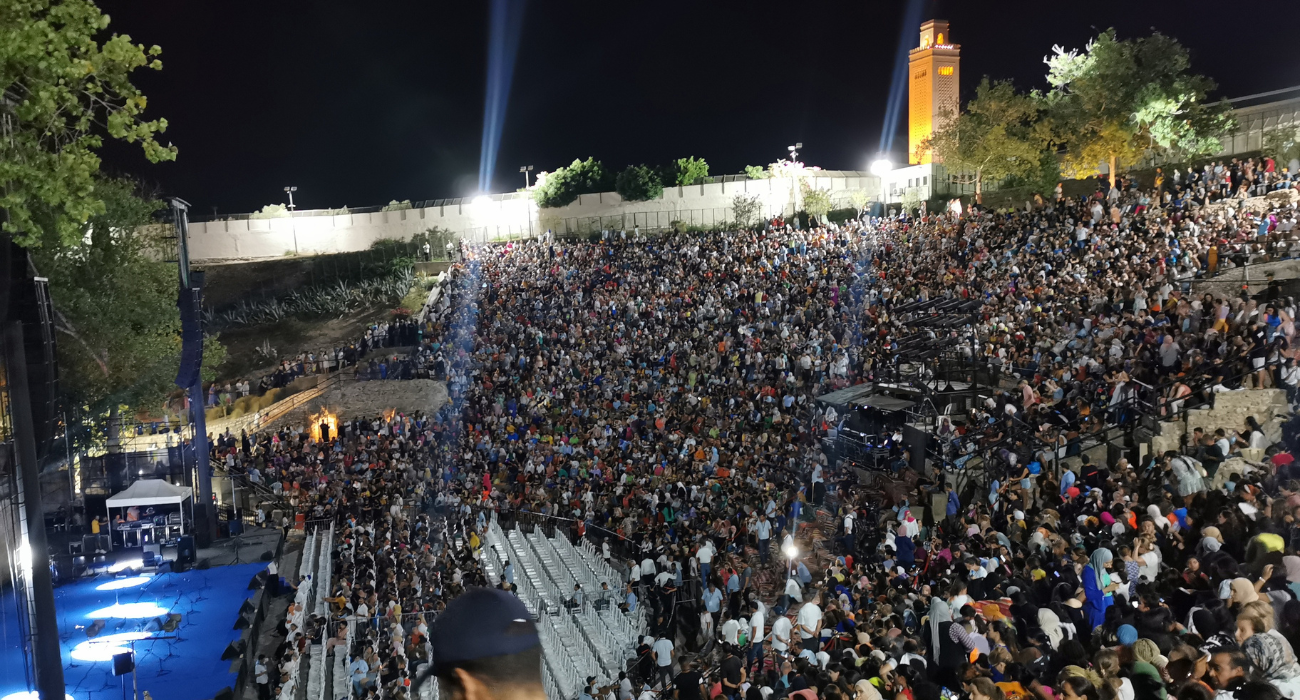Quick Links
The Romans ruled the Mediterranean some 2,000 years ago, and they have been long gone for around 1,500 years, but much of what they built lives on today. All around the Mediterranean, Roman theaters and amphitheaters have been restored and are used for concerts, events, and even Roman re-enactments today (like the annual Great Roman Games in the Arena of Nimes in France).
Around the former Roman world (mostly the Mediterranean Basin), a number of Roman amphitheaters remain in use today (plus many more Roman theaters). If one would like to enjoy a performance in a real-life Roman theater, then countries like Italy, France, Spain, Greece, Tunisia, and Turkey are all likely to have Roman theaters restored and in use. Explore those countries for Roman theaters and find events to attend.
History And Capacity Of The Roman Theater Of Carthage
The modern country of Tunisia today was previously the ancient empire of Carthage before becoming one of the earliest and most important provinces of the Roman Empire. Tunisia is full of ancient Roman ruins (including a very well-preserved Colosseum-like amphitheater). In the capital of Tunis is The Roman Theater of Carthage, and it is used regularly for concerts and events.
The theater was built by the Romans during their rule of North Africa; during this time, it was a premier central meeting place in the ancient city. It is thought to have been destroyed by the Vandals following their invasion of the province in the 5th century AD.
- Capacity: At Least 5,000 Spectators
- Destroyed: By The Vandals In The 5th Century
It is not so clear how much of the original theater remains a part of the restored theater today. Perhaps it is better thought of as more of a reconstruction than an ancient ruin - but don't let that take away from the vibe. It is very much the same ancient Roman theater as thousands of years ago - just with modern sound and video systems. As one sits on the ancient seating, one will be transported 2,000 years back in time (apart from the stereo system).
Visiting The Roman Theater Of Carthage
The Roman Theater of Carthage is an ancient Roman theater complex that has been restored and is in full use. It is located in the capital of the country, Tunis, and is open to the public.
- General Admission Fee: 32 Tunisian Dinar ($10.00) - Includes The Antonine baths
- Bardo Museum: Displays A Number Of Statues Found at The Carthage Roman Theater
Visitors today can tour the ancient theater for an admission fee of 32 Tunisian Dinar. The admission ticket also includes access to the ruins of the Antonine baths located a short distance away.
Tunisia is an often overlooked country best known for its beaches. It is also popular for exploring the Sahara Desert - including the movie set where the movie Star Wars was originally filmed. Tunisia is visa-free for all Western passports.
- Tunisia Visa Policy: Visa Free 90 Days
If one is planning to travel to Tunisia, one can see up-to-date safety information on the Department of State website.
Modern Performances In The Roman Theater of Carthage
Summer is when the Roman theater is in near constant use. Many events and concerts are held there, including many traditional performances. The calendar for performances and events can be viewed on the website, Festival de Carthage. Tickets range in cost from 20 Tunisian Dinar to 60 Tunisian Dinar ($7 to $20).
- Peak Season: Summer
- Performance Ticket Cost: 20 Tunisian Dinar to 60 Tunisian Dinar ($7 to $20)
It should be noted that Tunisia is a touristic country mostly for its beaches and other sectors of the country are not so well-developed for international tourism. The two languages of Tunisia are Arabic and French (it was part of the French Empire), and the performances and ticketing are likely to be only in a mixture of Arabic and French. To book and attend a performance, one will likely need to navigate in French (or Arabic) - unless one uses a tour agency to organize it all on one's behalf.
- Language: Generally, Everything Is In French and Arabic
The mood at the theater is electric and fills up with the younger population of Tunis. Performances can sell out - so plan in advance.
- Assigned Seats: None - Squeeze In Somewhere
Remember, this is an ancient theater. There are no assigned seats (or even 'seats' - just the old Roman benches), and tickets are sold to their full capacity. This means that to find a place, and one may have to push in and squeeze between other spectators (like the Romans did thousands of years ago).

